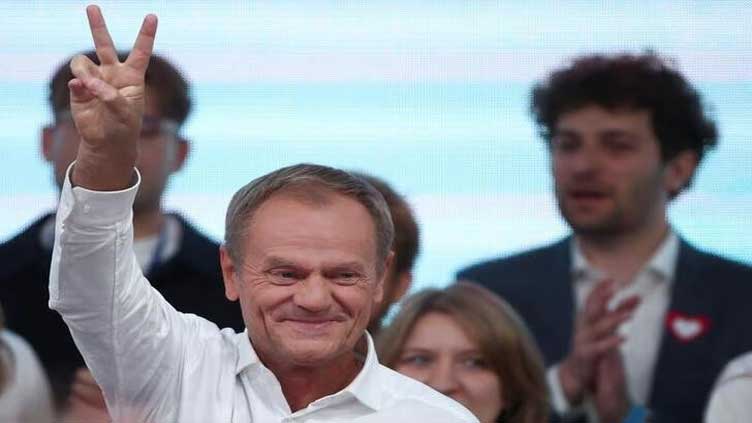Poland's Tusk calls for quick decision on appointing government

World
Poland's Tusk calls for quick decision on appointing government
WARSAW (Reuters) - Poland's president should move swiftly to allow the formation of a new government, Donald Tusk, leader of the Civic Coalition (KO), said on Tuesday, after official election results showed his liberal pro-EU party and its allies winning a majority.
A KO-led government would mark a massive shift in Poland after eight years of conflict between the ruling nationalist Law and Justice (PiS) party and the European Union over the rule of law, media freedom, minority rights and migration.
"I am making a passionate appeal to the president, people are waiting for the first decisions, so we are asking the president for energetic and quick decisions," Tusk said in a statement on social media platform X.
Earlier, the Electoral Commission confirmed that PiS had lost its majority, though it remains the largest single party in the lower house of parliament. PiS won 35.38% of the vote, which translates into around 190 seats in the 460-seat chamber.
Tusk's KO won 30.70% of the vote, the centre-right Third Way took third place with 14.40% and the New Left had 8.61%, the Commission said. The far-right Confederation won 7.16%.
KO, the Third Way and the New Left, combined, will have around 250 seats, the results suggested, enough for them to form a stable coalition government.
"In the coming days, after the (final) results are announced, we will talk," said Wladyslaw Kosiniak-Kamysz, a leader of Third Way, referring to the planned tripartite coalition negotiations.
However, forming such a government could take weeks, if not months. President Andrzej Duda, a PiS ally, said before the vote that he would give the first shot at forming a cabinet to the group or party that won the most ballots.
With no party indicating a willingness to join a PiS-led government, however, the nationalist party led by Jaroslaw Kaczynski seems unlikely to be able to secure a third term at the helm of the European Union's largest eastern member state.
In that event, Duda is expected to invite Tusk as leader of the second biggest party to attempt to form a government.
"Evil has prevailed in Poland, temporarily," Marek Suski, a senior PiS official, told public broadcaster TVP. "PiS is likely moving into a democratic opposition."
MASS MOBILISATION
Turnout in Sunday's election exceeded 74%, the highest in Poland since the collapse of communism in 1989 after the parties managed to galvanise large numbers of especially younger voters for the first time.
But the election campaign was marred by harsh, divisive rhetoric, reflecting deep polarisation within Polish society.
Vowing to protect Polish borders and sovereignty, PiS cast the vote as a fight against unfettered migration and against unwarranted interference in national life by remote, unelected EU bureaucrats.
Opposition leaders including Tusk, a former European Council president, said PiS would take Poland out of the EU if it won a third term - a charge denied by the ruling party despite its numerous legal and political feuds with Brussels.
The opposition parties have yet to name a candidate for the post of prime minister but Tusk, 66, is widely expected to be their nominee. He served as Polish premier from 2007 to 2014.
"Nobody doubts today that without Donald Tusk's energy and determination, change in Poland would not have been possible," Marcin Kierwinski, a senior KO official, told Polsat News broadcaster.
Still, the three parties are likely to face complex talks over issues such as abortion and LGBT rights.
On abortion, Kosiniak-Kamysz of Third Way said on Tuesday his party would support reversing a 2021 near-total ban on terminations by reinstating the right to abortion in cases of foetal defects, but would not agree upfront to further liberalisation.
KO and the New Left also want to allow abortions up to 12 weeks without limitations. Third Way wants Poles to decide the matter in a referendum.
"No ideological issues can be part of any coalition agreement," Kosiniak-Kamysz said.


